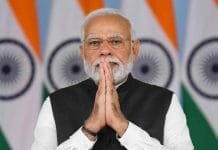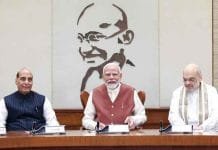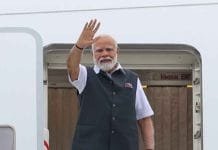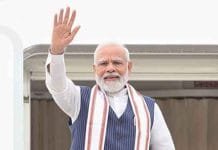The United States has categorically rejected allegations made by India’s ruling Bharatiya Janata Party (BJP) that U.S. government agencies and so-called “deep state” elements are attempting to destabilize India. These accusations, which center on perceived efforts to target Prime Minister Narendra Modi and prominent businessman Gautam Adani, were dismissed by a U.S. Embassy spokesperson as “disappointing.” The spokesperson reaffirmed America’s longstanding commitment to press freedom and emphasized that U.S. programs aimed at supporting independent journalism have no editorial influence over media institutions.
BJP’s Allegations Against the United States
The controversy began when BJP accused the U.S. of conspiring with the Organized Crime and Corruption Reporting Project (OCCRP) and Congress leader Rahul Gandhi to harm India’s international reputation. These allegations stemmed from an OCCRP report that highlighted concerns about the Adani Group’s alleged proximity to the Indian government. Rahul Gandhi referenced this report to criticize the group’s business dealings and their implications for India’s governance.
BJP further claimed that the U.S. Department of State, through USAID, had funded OCCRP, and that individuals like financier George Soros and institutions such as the Rockefeller Foundation were part of a coordinated effort to malign India. BJP cited a French media report as evidence, alleging that these entities were integral to a broader “deep state” conspiracy targeting India’s stability.
U.S. Embassy’s Firm Rebuttal
In response, the U.S. Embassy in New Delhi issued a statement refuting the allegations.
“It is disappointing that India’s ruling party would make such accusations,” stated the spokesperson. “The U.S. government works with independent institutions to promote professional development and training for journalists, but these programs are not designed to influence editorial decisions.”
The spokesperson emphasized that America has always supported a free and fair press as a cornerstone of democracy. Independent journalism, they stated, is vital for fostering informed debate, holding governments accountable, and promoting transparency.
OCCRP and the Allegations of Bias
The OCCRP, a globally recognized media platform headquartered in Amsterdam, focuses on investigative journalism related to crime and corruption. BJP accused OCCRP of acting as a tool for foreign interference, citing its funding by USAID and other Western entities. However, OCCRP has consistently maintained its independence and asserted that its investigative reports are grounded in evidence and aim to uncover critical global issues.
BJP’s concerns stem from OCCRP’s recent investigations into alleged misconduct by the Adani Group, which prompted Rahul Gandhi and other opposition leaders to call for increased scrutiny of corporate-government relations in India.
Allegations Against Gautam Adani
The controversy has also drawn attention to allegations of corruption involving the Adani Group. U.S. prosecutors recently accused Gautam Adani, his nephew Sagar Adani, and other associates of paying over $250 million in bribes to Indian officials between 2020 and 2024 to secure lucrative solar energy contracts.
The accusations have fueled demands by opposition parties, particularly the Indian National Congress, for a comprehensive investigation. Congress leaders have alleged that the Indian government is shielding Adani from accountability. However, the Adani Group has vehemently denied these allegations, dismissing them as baseless and politically motivated.
Press Freedom: A Pillar of Democracy
Amid the controversy, the U.S. Embassy reiterated its commitment to media independence, stating:
“An independent and impartial press is a fundamental component of democracy. It informs citizens, fosters constructive dialogue, and ensures government accountability.”
This statement reflects the broader principles of the United States, which has consistently advocated for press freedom as an essential element of global democratic governance.
India-U.S. Relations Amid Tensions
While the BJP’s allegations have introduced a layer of friction, the broader relationship between India and the United States remains robust. Both nations have cooperated extensively on trade, defense, technology, and climate change initiatives. Despite occasional political differences, the two democracies share a strategic partnership built on shared values and mutual interests.
However, incidents like these highlight the challenges of navigating complex international relationships in a rapidly evolving geopolitical landscape. The U.S. response underscores its commitment to fostering constructive ties with India while upholding the values of transparency, accountability, and press freedom.
The United States’ rejection of BJP’s claims signifies its dedication to supporting democratic principles, including an independent media. While the allegations against Gautam Adani and the broader implications of the OCCRP report continue to spark debate within India, the incident serves as a reminder of the importance of maintaining transparency and accountability in both domestic and international contexts.
India and the U.S. have a long history of collaboration, and moments like these emphasize the need for open dialogue to address misunderstandings and strengthen mutual trust. By reaffirming its support for journalistic independence, the U.S. has reinforced its position as a champion of democratic values worldwide.















